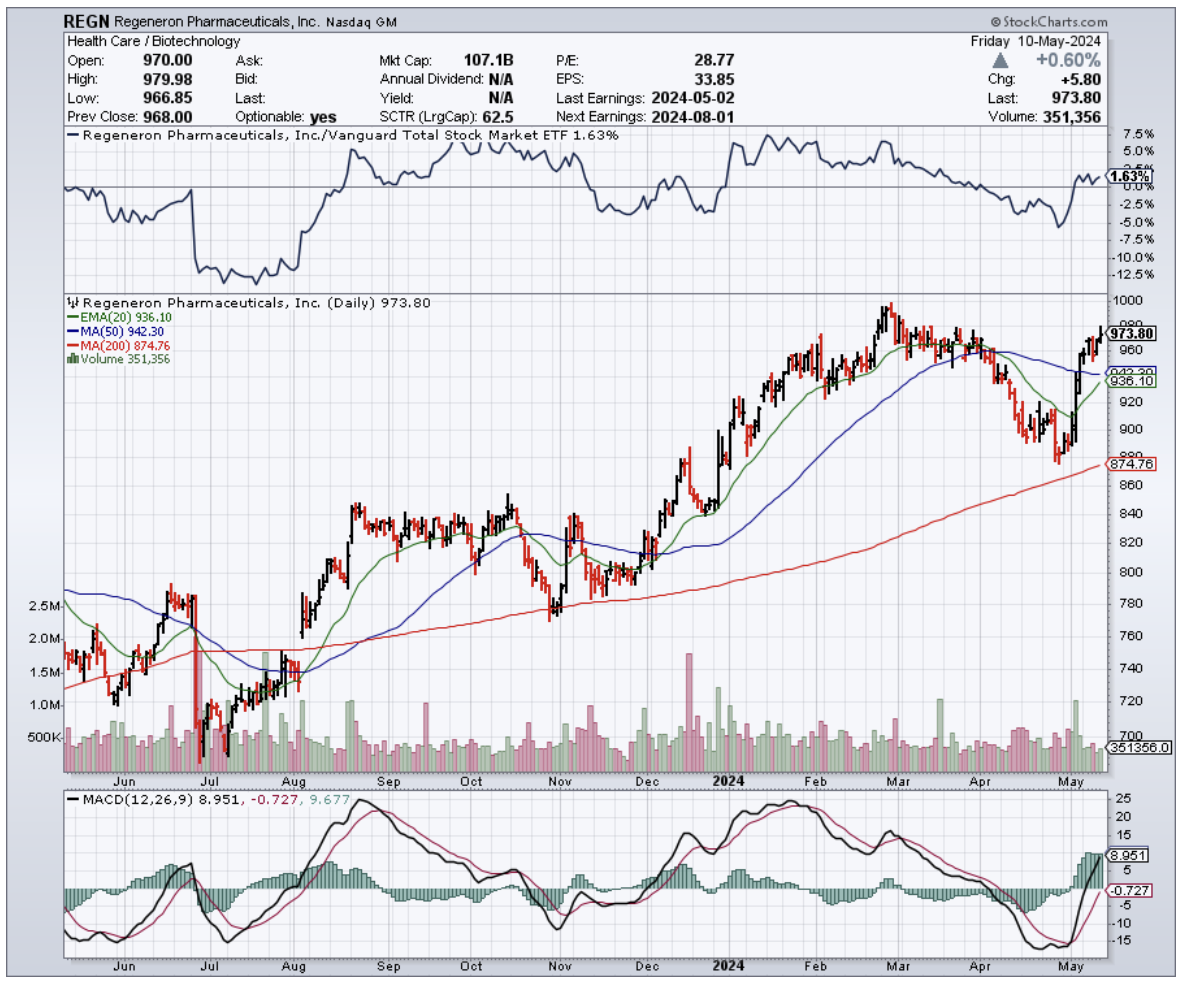When your kid is part of a cutting-edge trial for hearing restoration, you're practically glued to their every reaction. That's the case for the parents of the first little one to receive Regeneron's (REGN) experimental gene therapy, DB-OTO.
This groundbreaking treatment delivers the missing otoferlin protein to the sensory hair cells in the ear, restoring signal transmission and, theoretically, giving these kids the gift of hearing.
The baby, part of the CHORD trial, started responding to sounds at home way before the docs officially confirmed it.
"Beautiful" is Regeneron described this early sign of progress. Turns out, nothing beats seeing your kid react to the world of sound for the first time.
Let me give you the basics of this therapy. So, imagine the sensory hair cells in your ear as a team of tiny dancers. They groove to the vibrations of sound, signaling to your auditory nerve and ultimately your brain.
Kids with this specific genetic hearing loss have the dancers, but they're out of sync – they can't communicate that signal to the brain. DB-OTO is like giving these dancers a choreographer, delivering the missing otoferlin protein, and restoring the signal transmission.
Actually, DB-OTO isn't entirely a Regeneron creation. They snagged it up when they acquired Decibel for $109 million in 2023. But this wasn’t a hostile takeover – these two companies had been working hand-in-hand on DB-OTO since 2017, making the deal a no-brainer. Heck, Regeneron even brought over the team behind the project to keep things running smoothly.
And as it turns out, Regeneron and Decibel didn't have to reinvent the wheel (or the eardrum) with their delivery method.
They took a page from the cochlear implant playbook, making it easier for ear, nose, and throat docs (ENTs) to jump on board when this therapy eventually hits the market. They figured that they could just take this groundbreaking technology and make it work with techniques surgeons already know like the back of their hands. Smart move, right?
One unexpected twist? The family noticed the kid's voice sounded less harsh without the cochlear implant.
Now, that's not a hard data point, but it hints that DB-OTO might offer something unique: a more natural hearing experience compared to cochlear implants, which tend to have a robotic sound that takes some getting used to. Cochlear implants bypass the ear altogether, zapping the auditory nerve directly. Effective, sure, but not exactly the most elegant solution.
It's not just about regaining hearing – it's about unlocking a child's world. Regeneron’s ASGCT presentation showcased patient 1's incredible journey: responding to sounds at 3 weeks, meaningful sounds by 6 months, and even hearing with the cochlear implant turned off at 24 weeks.
A second 4-year-old patient is also showing promising signs, with improved hearing at the same early time points. Side effects? Nothing more than a common ear infection, which was easily treated.
But this wasn't an overnight miracle. Regeneron and Decibel brainstormed this idea six years ago, putting their heads together to figure out where they could make a real difference. They seem to have found their niche.
And they didn't just buy one therapy – they snagged a whole pipeline of possibilities. There's AAV.103 for a different type of hearing loss, and AAV.104 for another genetic form. They're even tackling balance issues, because apparently, ears do more than just listen. These additional therapies fit into Regeneron's broader strategy of becoming a leader in the auditory space.
Next, let's talk dollars and cents, shall we?
Regeneron shelled out $213 million (if you include those fancy CVRs) for Decibel. That's a hefty bet, but they're banking on DB-OTO getting regulatory approval in multiple countries by 2028. Ambitious? Absolutely. But the potential payoff for patients – and investors – could be worth it.
As expected, Regeneron's not the only one with their stethoscope in this growing market.
Eli Lilly (LLY) wasn't far behind, scooping up Decibel's rival Akouos for a whopping $487 million in late 2022. Plus, they're also gunning for that otoferlin gene therapy prize.
And don't forget Fennec Pharmaceuticals (FENC), who snagged FDA approval for their chemo-induced hearing loss treatment last year. Looks like everyone wants a slice of this pie.
Now, for the data geeks (I know you're out there).
Regeneron's Q1 results were a tad underwhelming for Wall Street, with EPS at $9.55 (below the $10.17 estimate) and revenue dipping slightly to $3.15 billion, mostly due to the COVID drug Ronapreve drying up.
But take that out of the equation, and revenue actually grew 7%. Not that bad.
And there's good news elsewhere. Sales of Dupixent and Libtayo are soaring, up 24% and a whopping 45% respectively. That's where the future lies.
Sure, they've had some bumps in the road (the FDA rejecting odronextamab wasn't ideal), but their Eylea HD launch is gaining steam, with $200 million in sales already.
These successes, coupled with the potential of DB-OTO and the other auditory therapies, paint a promising picture for Regeneron's future growth.
So, what should you do? Keep your eyes on their pipeline, especially those new oncology and weight-loss treatments. And with a $3 billion stock buyback plan, Regeneron's showing they're confident in their future.
This might not be a slam dunk, but it's a bet on a company that's not afraid to swing for the fences in the biotech game. With a strong pipeline, a track record of innovation, and the financial muscle to back it up, Regeneron is positioning itself to be a major player in this growing market.
For those willing to ride out the bumps, the long-term payoff could be music to their ears.


